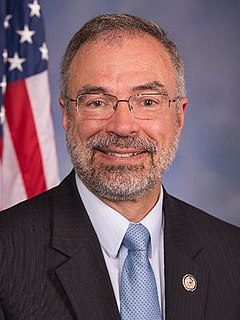A Quote by Bart Stupak
When I came to Congress, like our first panel, small business people, 64 percent of the people had health insurance. We'd buy it. Now, we're down to about 34 percent. That's why we have to do something on health care in this country because the cost is killing us.
Related Quotes
My biggest fear, that 27 percent of Americans under 65 have an existing health condition that, without the protections of the Affordable Care Act, would mean they would - could be automatically excluded from insurance coverage. Before the ACA, they wouldn't have been able to get insurance coverage on the individual market, you know, if you're a freelancer or if you had a small business or the like.
What democratic socialism is about is saying that it is immoral and wrong that the top one-tenth of 1 percent in this country own almost 90 percent - almost - own almost as much wealth as the bottom 90 percent. That it is wrong, today, in a rigged economy, that 57 percent of all new income is going to the top 1 percent. That when you look around the world, you see every other major country providing health care to all people as a right, except the United States.
We are unique among advanced countries that we don't have universal health care. My hope was that I was able to get a hundred percent of people health care while I was president. We didn't quite achieve that, but we were able to get 20 million people health care who didn't have it before. And obviously some of the progress we made is now imperiled because there's still a significant debate taking place in the United States. For those 20 million people, their lives have been better.
Although a government study found that men's health was much worse than women's health or the health of any minority group, headlines around the country read: 'Minorities Face Large Health Care Gap.' They did not say: 'Men Face Large Health Care Gap.' Why? Because we associate the sacrifice of men's lives with the saving of the rest of us, and this association leads us to carry in our unconscious an incentive not to care about men living longer.
Now, why would my supporters be supporting somebody who doesn't want to raise the federal minimum wage of $7.25 an hour, a starvation wage, doesn't want to do that. Why would anybody that supports me support a candidate like Trump who wants to throw millions and millions of people off of health insurance? We need to guarantee health care to all people as a right, not throw millions of people off health insurance as Trump wants to do.
The Affordable Care Act is a huge problem. [Repealing the ACA is] going to have huge implications. We have millennials that live in Boston that are on their parents' health insurance. The businesses have hired them and have been able to hire more people because they have been able to be on their own health insurance. We have seniors in our city who have preexisting conditions, or something called a "donut hole," which is a prescription drug [gap] in Medicare. Whatever changes they make could have detrimental effects on people's health care, but also on the economy.
Is it just a coincidence that as the portion of our income spent on food has declined, spending on health care has soared? In 1960 Americans spent 17.5 percent of their income on food and 5.2 percent of national income on health care. Since then, those numbers have flipped: Spending on food has fallen to 9.9 percent, while spending on heath care has climbed to 16 percent of national income. I have to think that by spending a little more on healthier food we could reduce the amount we have to spend on heath care.
Obama wants to take the individual small business tax to 44 percent, and the corporate rate - he says - down to 28 percent or whatever. But that really damages the small businesses. And it doesn't make us competitive. You got to take them both down to 20, because state and local corporate taxes are 5 percent.





























